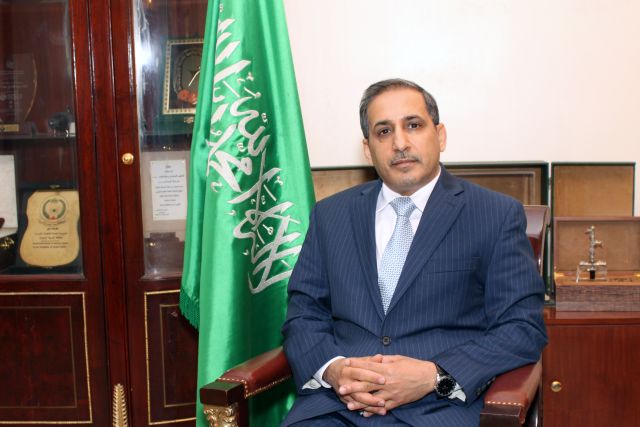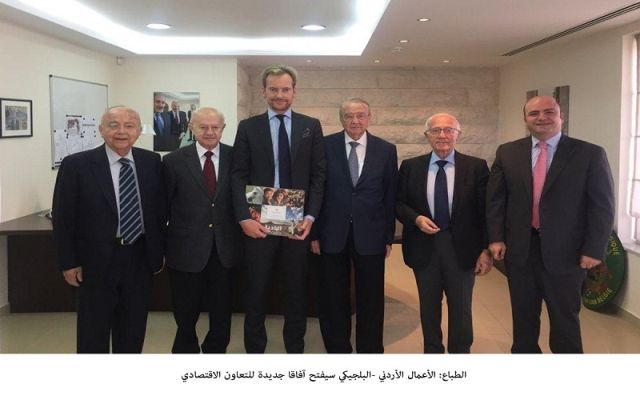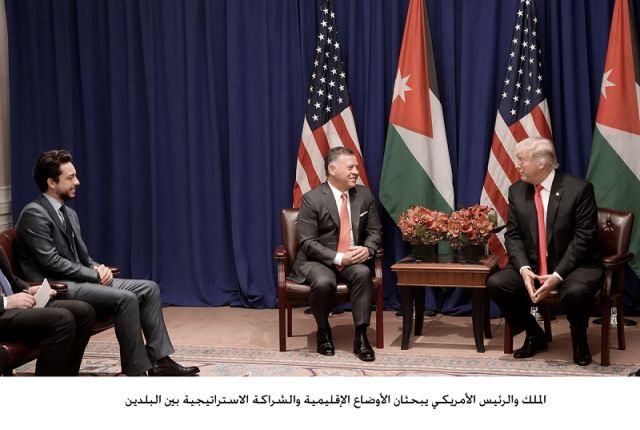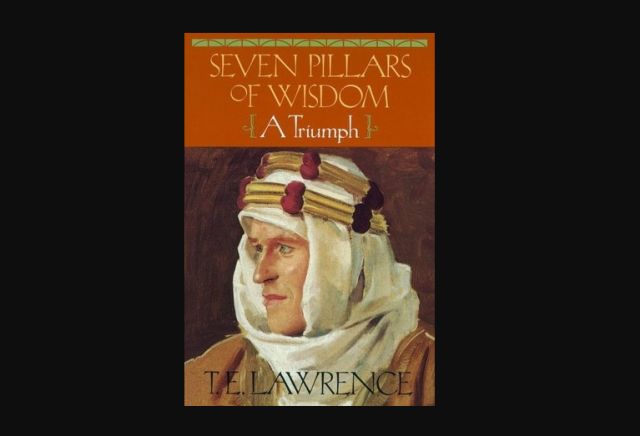
by admin | May 25, 2021 | Muslim World

Saud Mohammed Al-Sati
New Delhi : Saudi Ambassador to India Saud Mohammed Al-Sati on Wednesday said that the Palestine issue should be resolved through the Arab Peace Initiative espoused by his country.
“The Arab countries have clearly expressed their interest in reaching a peaceful solution for the Palestinian-Israeli conflict based on international legitimacy, the relevant UN Security Council resolutions and the Arab Peace Initiative that was proposed by Saudi Arabia more than 15 years ago, and was subsequently adopted by the Arab Summit held in Beirut in 2002 as well as by the Organisation of Islamic Cooperation,” Al-Sati said in a speech at an event to mark International Day of Solidarity with the Palestine People organised by the Indian Council of World Affairs (ICWA) at the Sapru House here.
“This peace plan, as you know, received wide support from the international community,” he stated.
The Arab Peace Initiative, proposed by Saudi Arabia, calls for normalising relations between the Arab region and Israel, in exchange for a full withdrawal by Israel from the occupied territories (including East Jerusalem) and a “just settlement” of the Palestinian refugee problem based on UN Resolution 194.
“We believe that the Arab Peace Initiative provides a solid basis for resolving the conflict, and that it has all the elements for a final settlement that can achieve lasting, comprehensive and just peace in the Middle East,” Al-Sati said.
“As Minister of Foreign Affairs of Saudi Arabia Adel Al-Jubeir said at UN General Assembly on September 23, 2017, the Israeli-Palestinian conflict was the most protracted in the region’s history and had led to a great deal of human suffering. Nothing could justify the continuation of this conflict, particularly when there was wide-spread agreement over the two-state solution. International determination was needed to make that solution a reality.”
The Ambassador called upon Israel to “stop its continuous defiance of the will of the international community by building the apartheid wall and illegal settlements in the occupied Palestinian territories in a clear violation of all relevant UN resolutions”.
“The Israeli authorities must also halt their attempts to Judaize Al-Quds city (the Arabic name for Jerusalem), obliterate its Arab identity, and change its demographic character and the historical status of Al-Aqsa mosque.”
On Tuesday, Indian Prime Minister Narendra Modi also reiterated India’s support for the Palestinian cause.
In 1977, the UN General Assembly called for the annual observance of November 29 as the International Day of Solidarity with the Palestinian People. On that day, in 1947, the Assembly adopted the resolution on the partition of Palestine.
—IANS

by admin | May 25, 2021 | Business, Investing, Muslim World
 Amman : President of Jordan Businessmen Association (JBA) Hamdi Tabbaa said that establishing a Joint Jordanian-Belgian Business Council in the near future will open new horizons for economic cooperation between the two countries.
Amman : President of Jordan Businessmen Association (JBA) Hamdi Tabbaa said that establishing a Joint Jordanian-Belgian Business Council in the near future will open new horizons for economic cooperation between the two countries.
In a meeting that took place on Tuesday with Belgium Ambassador to Jordan Hendrik van de Velde, Tabaa highlighted investment projects and advantages in the Kingdom, calling at the same time for benefiting from Belgian expertise, especially in the medical and energy fields.
For his part, Ambassador Van de Velde commended Jordan’s role in the Middle East, especially with regard to Syrian and Iraqi reconstruction projects and Jordanian companies’ ability to benefit from those projects, Petra reported.
He called for taking advantages of the Simplified Rules of Origin Agreement and promoting trade and economic relations between the two countries.
A Belgian food industries exhibition will be held soon in Jordan, the ambassador announced.
It is noteworthy that the trade exchange between Jordan and Belgium amounted to $128 million in 2016, $4 million of which were Jordanian exports from the sectors of clothing, fertilizers, and metals.
—SM/IINA

by admin | May 25, 2021 | Muslim World
 New York : Jordanian King Abdullah II on Wednesday held talks with U.S. President Donald Trump, focusing on efforts to revive the peace process and the overall developments in the Middle East.
New York : Jordanian King Abdullah II on Wednesday held talks with U.S. President Donald Trump, focusing on efforts to revive the peace process and the overall developments in the Middle East.
During the talks, which attended by Crown Prince Prince Al Hussein Bin Abdullah, the two leaders reviewed ways of enhancing cooperation and the strategic partnership between Jordan and the United States in various fields.
They emphasized the importance of boosting bilateral coordination and consultation on various issues. In remarks to reporters, the King thanked the U.S. president for his support to Jordan, offering at the same time his condolences over the victims of the hurricanes that hit the country recently.
The talks stressed on the need to intensify efforts aimed at moving the peace process forward through re-launching serious and effective negotiations between the Palestinians and the Israelis. In this context, the King emphasized the importance of the U.S. role in urging the Israelis to consider such efforts seriously, Petra reported.
On his part, King Abdullah warned that the failure to reach a just and lasting solution to the Palestinian issue based on the two-state solution undermines security and stability in the region and the whole world and fuels violence and extremism in the Middle East.
On the Syrian crisis, the two leaders stressed the need to intensify efforts to find a political solution to the crisis through the Geneva process in a way that preserves Syria’s territorial integrity and the safety of its people.
In the same context, King Abdullah and President Trump underlined the importance of the recent ceasefire agreement in southwestern Syria, which was reached between Jordan, the United States, and Russia. They said the agreement should act as a model that can be applied in other parts of Syria.
The talks also focused on counterterror efforts, stressing the importance of intensifying stepping up such efforts, both regionally and internationally, within a holistic strategy to address this danger, which threatens global peace and security.
“I’m very grateful for your support to our country in these difficult times and the special bond between our two nations.” “Terrorism is a scourge around the world, but I think Jordan will always stand beside you and your country. And we will overcome,” the King said.
From his side, President Trump said: “It’s a great honor to be with the King, who has been our partner and ally for a long time. And I think never has the relationship been better than it is right now.” “We’re working together on many problems and some things that aren’t problems that are very, very good. But we’re going to make some of the bad ones turn out good,” Trump added.
—SM/IINA

by admin | May 25, 2021 | Muslim World
 New York : Economic development is a key factor in deterring young people in the Middle East and elsewhere from becoming involved in violent extremism, a gathering of world leaders heard in New York.
New York : Economic development is a key factor in deterring young people in the Middle East and elsewhere from becoming involved in violent extremism, a gathering of world leaders heard in New York.
A one-day youth forum on tolerance — held under the joint auspices of the MiSK Foundation, the Saudi Arabian philanthropic organization headed by Crown Prince Muhammad bin Salman, and the UN Development Program — was told that economic advancement would encourage young people to participate in civil society and peaceful dialogue. Abdullah Al-Mouallimi, Saudi ambassador to the UN, told the forum that the Kingdom’s Vision 2030 strategy aligned with the UN’s 2030 Agenda for Sustainable Development.
“Both have not only economic parameters, but are also about the potential in society, the environment and in justice. The Saudi strategy describes a vision of how to move from dependence on one commodity and how to develop a more coherent society with integrity in its approach to social issues, which are also the goals of the UN,” Al-Mouallimi said.
He highlighted the role of young women in the transformation. “Saudi women comprise 60 percent of the college population in Saudi Arabia, and they are going to come to the workforce and make a dramatic difference,” Al-Mouallimi said. Bader Al-Asaker, secretary-general of the MiSK Foundation, said: “Our aim is to shine a light on the transformative power of youth, to lift them up and prove a platform for young people to create positive change.”
Michael Bloomberg, the media entrepreneur and former mayor of New York, said that he was in partnership with MiSK in Saudi Arabia to train young citizens in economics and finance. He said that the growing number of young people who live in cities, both in the Middle East and the rest of the world, would help promote tolerance and peace. “Some people call them the millennial generation, but I’d rather refer to them as the metropolitan generation. Now 50 percent of the world’s population live in cities, and nothing has done more than cities to spread tolerance and peace in the world. Cities also encourage innovation and sustainable development,” he added.
Achim Steiner, administrator of the UN Development Program, also stressed the role of economic development in nurturing tolerance. “For young people, achieving the Sustainable Development Goals means the possibility of attending school, having access to health care, participating in their civic and political discourse, and living free from conflict. It means having hope and prosperity.” The one-day MiSK event in New York consisted of high-level panel discussions, speeches and workshops, with more than 20 youth leaders from round the world. A senior adviser to MiSK said the event was part of the Kingdom’s global outreach program, and that there would be further cooperation between Saudi Arabia and the UN on specific development initiatives.
“The younger generation is driven by the desire to create an impact, and if you don’t give them opportunities in entrepreneurship they’ll find another way to do that,” the adviser said. The MiSK-UN event, which was attended by more than 400 people from 60 countries, coincided with the 72nd Session of the UN General Assembly (UNGA). A panel moderated by former NBC News anchor Tom Brokaw and featuring former US Secretary of State Madeleine Albright focused on the information revolution and what she called the “disaggregation” of news. Albright advised the young audience to be skeptical about the information they encounter, especially on social media.
Two other panels discussed the challenges faced by refugees around the world and how best to counter violent extremists. Panelists on the latter panel stressed the importance of engaging with youth and offering them a sense of hope and purpose. One memorable moment came when Saudi writer Kawthar Al-Arbash recounted the moment she learned that her son had been killed after he stopped a suicide bomber from carrying out an attack inside a mosque in the city of Dammam. Her moving, personal account was met with a standing ovation.
—HA/IINA

by admin | May 25, 2021 | Opinions
 By Vikas Datta,
By Vikas Datta,
How is history made? From the interplay of political, social and economic forces, decisions made elsewhere or the contested “Great Man” Theory — the influence of one key man at the right place and time? For the modern Middle East’s making and its problems, all seem to play a role, including in explaining what Lawrence of Arabia accomplished — and the consequences of ignoring his advice.
As the entire Middle East is in greater turmoil than ever before, we should remember T.E. Lawrence, whose 129th birth anniversary was on August 17. More importantly, it is what lessons we can learn from him in the centenary of his biggest accomplishment — the Arab Revolt — though its outcome wasn’t what he wanted.
And history proves him right. British traveller and author Anthony Sattin, who has also written about Lawrence, says if he happened to come back and see today’s Middle East, he would say: “Told you so!”
But despite the reams written about him, most people only know of him through Peter O’Toole’s inspired, but misleading, portrayal in David Lean’s 1962 masterpiece. And despite its cinematic magnificence, “Lawrence of Arabia” does suffer from its medium’s limitations, which require condensing, simplifying or “jazzing up” reality.
For one, he wasn’t as tall, or as flamboyant, as O’ Toole made him to be. In the film’s beginning, asked by a reporter about Lawrence, American journalist Jackson Bentley says: “It was my privilege to know him and to make him known to the world. He was a poet, a scholar and a mighty warrior.” Adding later: “He was also the most shameless exhibitionist since Barnum & Bailey.”
While it was Lowell Thomas — whom the character represented as the American journalist — who made him famous through his pictures and film footage, Lawrence, who did contribute to his own legend, did not like this always.
The shy Lawrence was a much more complex, astute — and divided — man, possessing an insightful understanding of the Middle East’s intricate mosaic of clan and tribes and their intractability that few outsiders had. He was able to derive lessons from the current situation his superiors and government failed to see or ignored.
So where should we learn about him?
There is his own “Seven Pillars of Wisdom” (1926), published after some vicissitudes. But for all its lyricism, it is his version, with an eye on posterity. It was forestalled by Thomas’ “With Lawrence in Arabia” (1924), which Lean’s film drew on. Other biographies published in his lifetime included poet and novelist Robert Graves’ “Lawrence and the Arabs” (1927) and military strategist and historian B.H. Liddell-Hart’s “T.E. Lawrence in Arabia and After” (1934) — both drew on their subject for information.
While an authoritative biography by Jeremy Wilson (“Lawrence of Arabia: The Authorised Biography of T. E. Lawrence”) came as late as 1989, it seems better to see Lawrence reassessed at the zenith of chaos resulting from Britain’s betrayal of its promises to the Arabs, and the subsequent (colonial) settlement. But before this, we need to see the evolution of Lawrence himself.
This is done in Sattin’s “Young Lawrence: A Portrait of the Legend as a Young Man” (2014), which seeks to make Lawrence “a real person”. Covering aspects of Lawrence’s early life, skipped over or touched lightly in other biographies, it focusses on his birth (out of wedlock), his difficult relationship with a dominating mother, his deep affection for an Arab boy, his extraordinary journeys in the Middle East, and why he became an archaeologist and a spy.
Meanwhile, historian Lawrence James’ “The Golden Warrior” (1990, updated 2008) “penetrates and overturns the mythology” around Lawrence and seeks to “trace the sometime spurious Lawrence legend back to its truthful roots”.
His academic colleague James Barr’s “Setting the Desert on Fire: T.E. Lawrence and Britain’s Secret War in Arabia, 1916-1918” (2006) places the revolt Lawrence led against the wider context, its outcome — dictated by the Allies — and its implications from then to now, spanning from Mahatma Gandhi to Osama Bin Laden.
American journalist Scott Anderson’s “Lawrence in Arabia: War, Deceit, Imperial Folly and the Making of the Modern Middle East” (2013) also takes the wider view, but supplements Lawrence’s activities with some friends and enemies operating in the same area at the same time, including an American geologist and a German secret agent.
Basically, Lawrence’s legacy can be summed in a dialogue from the film. As Prince Feisal tells him: “There’s nothing further here for a warrior. We drive bargains. Old men’s work. Young men make wars, and the virtues of war are the virtues of young men. Courage and hope for the future. Then old men make the peace. And the vices of peace are the vices of old men. Mistrust and caution. It must be so.”
But the world continues to pay a price.
(Vikas Datta is an Associate Editor at IANS. The views expressed are personal. He can be contacted at vikas.d@ians.in)
—IANS





